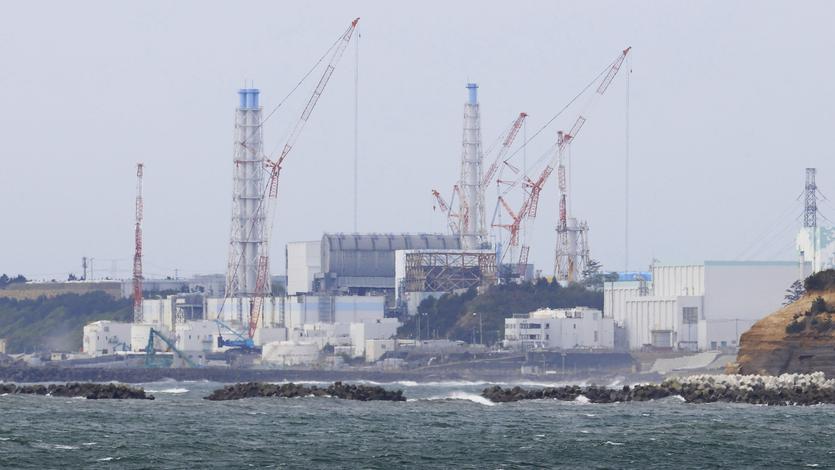 This file photo dated April 13, 2021 shows the Fukushima Daiichi nuclear power plant in Fukushima prefecture, north of Tokyo. (PHOTO / KYODO NEWS VIA AP)
This file photo dated April 13, 2021 shows the Fukushima Daiichi nuclear power plant in Fukushima prefecture, north of Tokyo. (PHOTO / KYODO NEWS VIA AP)
Japan should work on other plans to discharge Fukushima's nuclear-contaminated water than that of discharging it into the sea, Foreign Ministry spokeswoman Mao Ning said on Friday.
The International Atomic Energy Agency's task force has yet to complete an assessment of Japan's ocean discharge plan, and Japan has not consulted fully with stakeholders on the plan, Mao said.
Under such circumstances, it is "extremely irresponsible" for Japan to approve the plan and accelerate the construction of related facilities, Mao added.
According to international law, Japan has an obligation to take measures to avoid environmental pollution and minimize hazardous effects, Foreign Ministry spokeswoman Mao Ning said on Friday
On March 11, 2011, an earthquake-triggered tsunami caused reactor meltdowns in the Fukushima Daiichi nuclear power plant. Since then, radioactive substances from the plant have contaminated a massive amount of water, including that used to cool down the reactors.
ALSO READ: Rice into plastic: Bringing hope to a struggling Fukushima town
In April 2021, Japan announced plans to discharge the contaminated water into the sea after treatment, triggering strong opposition and criticism from neighboring countries and many experts and scholars.
However, Japan went ahead with the plan and announced in January that the discharge would start around spring or summer.
Japan should live up to its obligation, place itself under strict monitoring by the international community, and dispose of the water in a science-based, open, transparent and safe manner, including looking into alternatives to the ocean discharge plan, Mao said
According to international law, Japan has an obligation to take measures to avoid environmental pollution and minimize hazardous effects, Mao said on Friday.
"The disposal of the nuclear-contaminated water bears on the global marine environment and public health. It's not Japan's domestic affair," said Mao, urging Japan to seriously take into account the legitimate concerns of all parties.
Japan should live up to its obligation, place itself under strict monitoring by the international community, and dispose of the water in a science-based, open, transparent and safe manner, including looking into alternatives to the ocean discharge plan, Mao said.
READ MORE: Safety doubts shroud plan to release Fukushima water
"Before having full consultations and reaching a consensus with neighboring countries and other stakeholders and related international organizations, Japan should not start the discharge of water into the sea."



